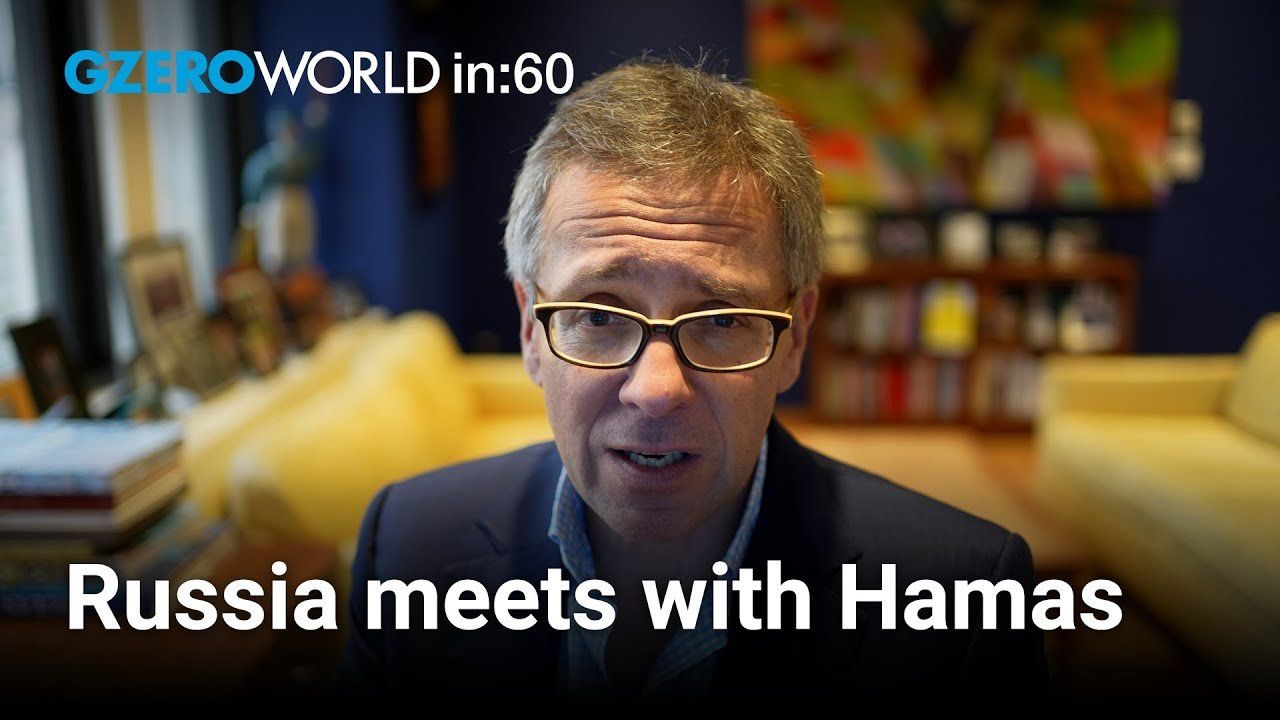
Ian Bremmer shares his insights on global politics this week on World In :60.
Why does Israel's ground invasion of Gaza feel so secretive?
Well, I mean, partially, it's because it's really hard to get information from on the ground. It's not like you've got a lot of journalists or international media that are covering it. The infrastructure is horrible and getting blown up every day, and also because the internet hasn't been working. And because you can't trust any of the local institutions to provide good information because it comes out of Hamas. But leaving that aside, between satellite photos and some eight organizations, the level of brutality and the civilian casualties are still becoming, they're coming through loud and clear, and I'm deeply concerned about the knock-on impact of that for the region, for Israel, for Palestinians, for everybody.
Why is Russia meeting with senior Hamas officials?
Well, because Russia's increasingly less an ally of China and more a rogue that is decoupled from the advanced industrial democracies. And so their closest friends on the global stage are Iran and North Korea, where they get military support, as well as an organization like Hamas, which of course, has become a proxy for Iran. And the Russians are not interested in a stable global order that they have more influence over, that's China's perspective. Russia's more interested in more chaos. The West actively losing influence everywhere in the world, irrespective of whether the markets work or don't. And Russia taking advantage of that chaos and existing in those vacuums, that is a bad thing for the global order.
Could Netanyahu be forced to resign during the war?
Look, anything is possible if you were to get, for example, some members of the Likud party or his coalition partners to flip, but in the middle of a war, that is incredibly unlikely. Israel, of course, has been very, very divided in part because of Netanyahu and what we've seen over the past months in domestic judicial reform and the response to that. But now that they have faced the worst violence that Jews have faced since the Holocaust, everyone has come together and they're focused on fighting that war, that is a unified war cabinet. And I think you'll be very hard-pressed to see an effort to make any major political moves internally in Israel until that war has played out for at least a matter of months. And I do think that's what we're looking at.
Finally, happy Halloween. What's your costume?
None of your business. I'm not even sure I'm wearing one. I might, I don't know. But I will tell you that Moose does enjoy dressing up on Halloween. And if I can find it, he will probably wear his Count Dracula costume because it's small and furry, and he seems to like it. So I mean, why not? It's better than a treat for the dog, and it keeps him alive for longer.
- What We’re Watching: Russian annexation fears, Russia-Israel drama, Mali breaks from France ›
- What We’re Watching: Ukraine latest, Israel blocks arms to Kyiv ›
- Will Israel be forced to choose between Russia and Ukraine? ›
- Israel, Iran, and the metastasizing war in Ukraine ›
- US compared to Russia after tanking UN resolution on Gaza ›
- Israel-Hamas war: Biden's second foreign policy crisis ›